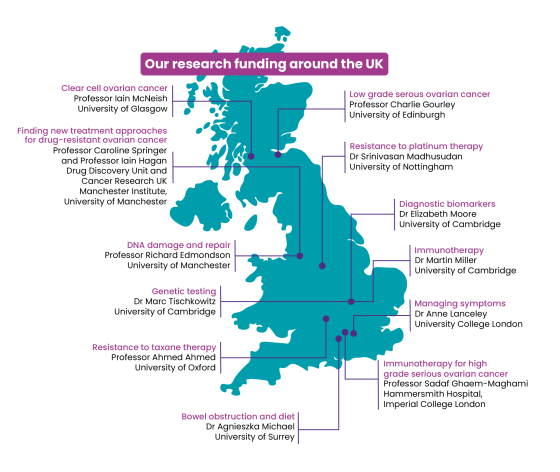We fund innovative translational research aimed at understanding more about ovarian cancer. Translational research helps move researchers’ ideas from the lab to the hospital. Together, we’re targeting projects that will lead to more personalised, kinder and more effective treatments for people living with ovarian cancer – and ultimately a cure.
We have funded research across the UK since 2012. So far we have committed over £1.8 million in research funding.



